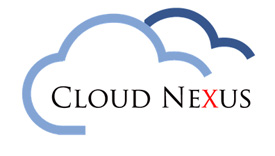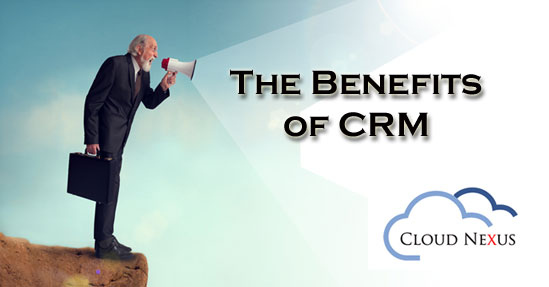Customer Relationship Management has become one of the most powerful set of application software tools and it continues to play an increasingly important role in small and medium-sized companies. But, is your company taking full advantage of the platform, including workflows, triggers and opportunity management?
CRM is software that your company can use to communicate with your customers. CRM is the abbreviation for Customer Relationship Management. It is software that your company can use to communicate and manage tasks with your customers. Roughly speaking, a CRM system helps you in customer acquisition and subsequent customer retention. But what exactly does that mean? To ensure that customer relationship management does not become an end in itself, I will summarize the main benefits of CRM in a nutshell.
The Benefits of CRM for Sales
A CRM system allows you to approach sales systematically. Put some structure around how you sell to your customers. Your customers and prospects are all stored in the CRM with all associated contact data – everything you need to know about a contact or account is clearly laid out in one place. From keeping track of the first meeting and initial questions through contract negotiations to post-sale assistance, you can capture notes and associated data related to a deal and create tasks and reminders so that no follow up task is ever missed, and no opportunity is overlooked.
With a CRM system, the customer becomes the focus of all activities: You build up a relationship with the customer and strengthen customer loyalty by utilizing the system to proactively meet your customer’s needs.
Every user on your team works together in sales with CRM. Even departments that you might not consider instrumental to winning that deal can work together synchronously and efficiently with a central CRM and coordinate activities perfectly. That’s one of the biggest advantage of a cloud-based CRM system. Whether your team is in a central location, or scattered around the globe, everyone can stay on top of activities associated with important opportunities.
Overall, having a more organized knowledge base of business activities will lead to increased sales and improve customer satisfaction and customer loyalty.
The Benefits of CRM for Marketing
In today’s social centric economy, competing for attention and ultimately capturing your target audience’s interest requires much more than spamming your contacts and waiting around for the phone to ring. Without the proper analytics, you could potentially be costing your company more time and money than it is worth and without any means to measure your marketing efforts effectiveness, you will never know for sure. Companies that are savvy and see the benefits of an automated marketing solution, have the competitive advantage of being able to make the necessary adjustments to their marketing plans based on real time results as each campaign is executed. They are no longer left in the dark regarding ROI of their marketing efforts.
The idea that marketing automation tools are for Marketing teams and CRMs are for Sales and Service teams is flawed. The reality is that marketers benefit significantly from accessing and using the data collected in a CRM. Here’s how:
- Continue nurturing leads that failed to convert. Using CRM data, marketers can identify which leads spoke with sales but didn’t convert. Using the details recorded from that conversation, marketing teams can build personalized campaigns designed to continue nurturing the lead in hopes of an eventual conversion.
- Identify marketing-generated revenue. Marketers who use Ruler Analytics can connect their analytics program and preferred CRM, closing the loop between marketing and sales. This allows you to track and report on marketing-generating leads and revenue, providing leadership with detailed figures on marketing’s ROI.
- Bring hot leads to the attention of sales. Most CRMs include a feature that scores each lead’s likelihood to convert. When marketing and sales team members are both monitoring this information, it increases the likelihood that key prospects don’t slip through the cracks and boosts the amount of revenue marketing generates.
- Stop wasting time on cold leads. Another benefit of lead-scoring tools is the ability to identify cold leads. If you know which customers—or which types of customers—are unlikely to convert, you can stop wasting time nurturing those customers and divert your attention to the leads that are more likely to result in revenue.
- Gather valuable information for ABM campaigns. If your team is running an account-based marketing program, your CRM is your best friend. It helps you identify possible cross-sell and upsell opportunities for existing customers and create targeted campaigns designed to highlight the benefits of additional products to target accounts.
- Identify renewal marketing opportunities. CRMs contain valuable renewal marketing data like subscription expiration dates and service call conversations, allowing marketing teams to build lists of existing customers at risk for non-renewal that should be targeted by renewal marketing campaigns.
- Discover gaps in the customer journey. The ability to review what questions leads ask when working with sales or customer service provides valuable data that can be used to strengthen your customer journey, come up with ideas for new types of content to publish, and build a more effective funnel.
As customers demand more personalized service and expect more cohesive experiences, the ability for marketing, sales, and service to work from a centralized information repository becomes more and more crucial.
Beyond all of these benefits, centralizing customer data in a CRM leads to a better customer experience, which increases customer loyalty and has a direct impact on sales.
AUG
2018


About the Author:
Experienced technical business analyst recognized for implementing cost-effective solutions, leveraging SFDC development with new and legacy data assets, and providing customized solutions for critical business requirements. Engages with executive leadership, sponsors, and end users to develop and deliver end-to-end enterprise solutions that expedite vital business functions and expand revenue growth. Orchestrates sales solutions with maximum economic impact for businesses; specializing in highly matrixed, global Clinical Research Organizations (CROs).